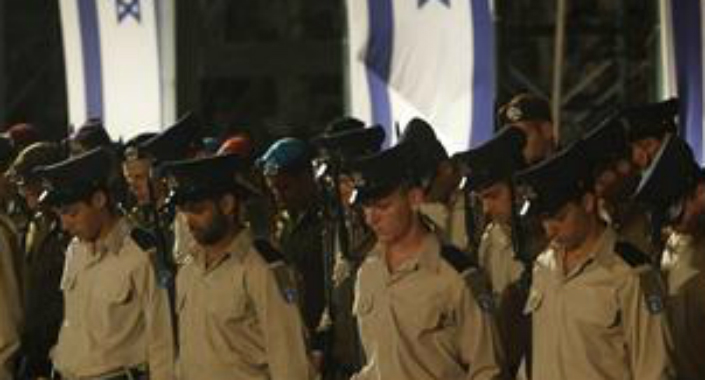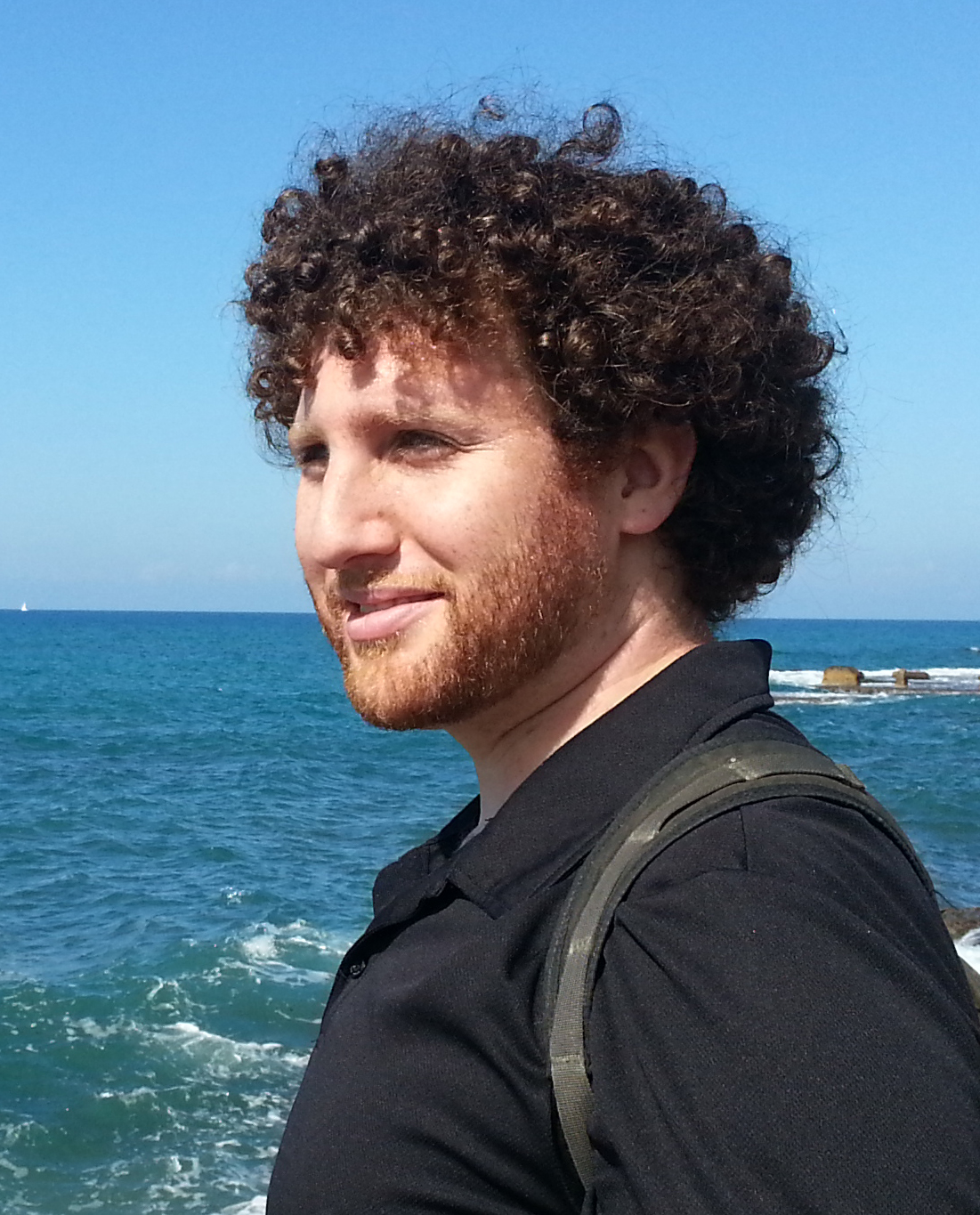
We are about to start Yom Hazikaron – Remembrance Day for Israel’s fallen soldiers. It’s difficult to convey how solemn this day is as opposed to Memorial Day and Remembrance Day in other countries. I grew up in Canada. Both of my grandfathers served in the Canadian Military as did other members of my family. Canadian Remembrance Day was important to me and had its place, with a minute of silence being observed and a couple of national ceremonies taking place, but it wasn’t vastly different from most other days.
Yom Hazikaron in Israel is different. It is all-encompassing. The entire country stops and mourns. The feeling of melancholy starts to set in a day or two before. All of the programming on the news, radio, and the national TV is about fallen soldiers. Yom Hazikaron is so central and focused due to the fact that everyone is connected to the fallen.
In Israel, there is a mandatory draft at the age of 18, right after high school, and the military selection process begins a couple of years earlier. Although there are a number of people who get exemptions to the draft, almost everyone’s social circle includes many draftees.
Israel is a very small country so everyone knows everyone- in one way or another everyone has a personal connection to the army and to combat units.
I moved to Israel in 2003 and joined the army. These are some of my experiences and memories that have impacted how I feel on Yom Hazikaron:
I served in the Nahal infantry unit. During my training as an infantry soldier I began to feel a connection with every infantry soldier; a kinship with any soldier with the same beret colour; a familial connection to everyone in my brigade; and like a brother to everyone in my company.
Army training isn’t the safest thing in the world. Many mishaps occur.
As the months of training progressed by we were told of a few cases in which soldiers killed each other in training accidents. One evening my squad and I were talking about how we would feel if we killed one of our group by mistake. The overall conclusion was that we would feel a tremendous amount of guilt and grief that would be too strong to bear.
The Friday after the conversation, we got the newspapers and read of an accident that had occurred in a unit that was doing training in the north. A jeep had gotten stuck in mud and had then been driven over by an APC [armored personnel carrier], killing the two people in the jeep. Reading about this tragedy so soon after having that conversation my squad, I understood the tremendous loss that the members of the unit training in the North must have been feeling, and I felt a loss too. The feeling spread through the platoon and I realized that the whole army was mourning for those two soldiers. A few days later I visited some family in Rehovot and was told that my friend was at the funeral because he had done the Commanders’ Course with one of the soldiers in the jeep. I felt the loss from a different angle.
We finished training, started active duty and were placed in Hevron, A few months later we moved to Gush Etzion/Bethlehem.
One day were sitting in our rec. room watching ‘Friends’ when our company commander ran into the room and yelled ‘everyone go pack your combat gear and your sleeping bags, there’s an order that we may be taken by helicopter into Gaza in the next few hours!’.
In the chaos that ensued word spread that a mine had blown up an APC of the Givati Unit, killing a number of soldiers. Rescue attempts had been launched resulting in a loss of close to 13 soldiers. Terrorists had then stolen body parts from the wreckage. We were all shocked and outraged by this.
During the time I spent packing my gear my anger changed into sorrow, fear and then terror! I realized that my friend was a commander in the unit that had been affected! I was scared for him. Was he ok? was he injured? Had he lost his soldiers? those were the thoughts that started to run through my head.
Some time passed during which we were doing standard operations when I got sick and spent two weeks in the hospital. I was then given sick leave. During that time my brigade moved from Bethlehem to Jenin. Our Unit held three bases surrounding Jenin.
One day I was out at the beach with a friend when I got a call from my friend Ron. He said ‘Yoni, someone at one of the bases has been hit. but we don’t know what’s going on- try to find out!’
I called as many people as I could. No one knew anything. I called the officer who was in charge of all the wounded soldiers. She told me that she couldn’t tell me anything. I realised that it meant that she couldn’t tell me as his parents hadn’t been notified.
I was sick with worry!
Was it Hayim who had shared a tent with me during field week?
Was it Ido who sat beside me for hours while I was in the hospital?
Was it Ilan who had always managed to keep my spirits high?
I called the person who would know, and would tell me, my company commander. He told me that “It is Yair Tourjeman”
“WHAT?! Tourjeman’s been hit?!” To us he had been a legend. He had done basic training with my commander, who had ‘brought us up’ on stories about him.
With a sinking feeling in my stomach I called up my previous commander who had finished the army a few weeks earlier. He started to cry but at the same time he thanked me for telling him.
30 days after the funeral I was standing by Tourjeman’s grave on Har Hertzel listening to his parents talk about how happy they were to have had such a good son who had helped so many people. Through misty eyes I looked around and saw the religious standing with the non religious, new immigrants standing with old Israelis, Sephardim standing with Ashkenazim, all standing together untied around Tourjeman. I realized that it was due to thousands like Tourjeman that we have Israel today.
Even though I only knew of him and never actually met him, till today I feel like I lost a brother.
Two years later, while in university a friend called me out of a class and introduced me to a friend of hers – Mikey. I met a nice guy with a great sense of humour who was in the paratrooper unit, we hit it off.
A little while later the second Lebanese War started. My friend told me that Mikey was in Lebanon and she was sure that something bad was going to happen to him. Every day I saw that she got more and more anxious, so we went out for a day in Jaffa to relax. As we were walking through the shuk (market) in Jaffa she got a phone call, I saw all the colour drain out of her face, and knew right away what had happened.
The store owners brought a chair and water and inquired what had happened, I explained that her friend had been killed in Lebanon.
The people told me that nothing could have happened because it wasn’t reported on the news.
I had the gut wrenching realisation that his parents hadn’t been notified yet.
The funeral wasn’t going to be for a few days because Mikey was American and the army had to bring them in from America.
All of Mikey’s friends spent the days leading up to the funeral together, comforting and supporting each other.
The funeral took place on Tisha Be’av. The Jewish day of mourning of the destruction of the Temples and every other tragedy that befell the Jewish people.
Once again I was standing on Mt. Hertzel for a funeral.
Up until then I had been strong and not cried. But as I heard Mikey’s father saying Kaddish (a prayer that one says over a family member who dies), I imagined how it must feel to say Kaddish for the first time and the emotions just swept me away.
In the years that pass, while guiding tours I go up to Mt. Hertzel (the main military cemetery) . I tell the stories of Mikey and Tourjeman and I hear stories of loss from other people.
Each year the number of people and stories grows.
My sister inlaws best friend who was killed in a terrorist attack, my friends student who was killed during a military operation, and many other.
unfortunately the pain never ends.
On Yom Hazikaron we aren’tidolizing an idea rather honouring the memory thousands of brothers, sisters and friends who gave everything so that we can be here today.



Dear Yoni,
Your words and emotions bring the reality closer to those of us who live in safety on the other side of the world. The soldiers and civilians who have lost their lives in Israel are remembered. And the memory of their lives is elevated through sharing, the kind of sharing you have done. Thank you.